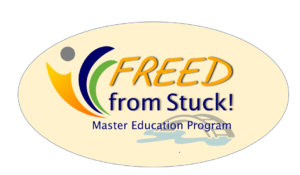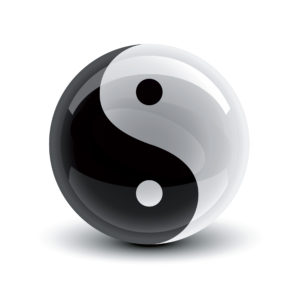What if you could change your frustration, disappointment, and condemnation into something different . . . something better . . . ?
If you are blocked, constricted, or frustrated in some part of your life experience, consider the following . . .
By letting go of self-condemnation, using curiosity, confidence, and creativity, you can transform self-condemnation and self-sabotage into success.
“The deepest human defeat suffered by human beings is constituted by the difference between what one is capable of becoming and what one has, in fact, become.”
Ashley Montagu
CONDEMNATION: (kon-dem-ney-shuhn)
Just for a moment, stop to consider the following definition in relationship to Your Self.
Condemnation is to “judge, blame, consider guilty; to proclaim punishment, to state something or somebody is wrong or unacceptable, to force somebody to experience something very unpleasant; to issue an official order that something is unfit to be used; severe reproof, strong censure.”
Sound familiar? Has it helped you get unstuck? Probably not.
That inner critical voice started out as well-intentioned protection but stagnated into a process that is counter-productive and self-destructive.
Early on, we learned from those we looked up to how to live in the world – how to speak, think, act, and feel – how to get along in life.
From our observations and experiences, we developed an inner voice that dialogues (constantly) about how we should make our choices throughout the day.
This voice, though well intended, chatters, mutters, snorts, screams, whines, and repeats itself ad nauseum. It is fond of themes like shoulda, coulda, woulda . . . And we think, if we’d just listen, we’d get it right.
But what actually happens is that when we feel condemned inside, it never brings out our best. Rather, we become immobilized and disempowered.
We grow weary, angry, and resentful. We expend valuable energy warding off this voice; warding off the feelings of guilt, fear, and shame. And nothing changes . . . or very little.
We experience failure.
“The torment of human frustration, whatever its immediate cause, is the knowledge that the self is in prison, its vital force and ‘mangled mind’ leaking away in lonely, wasteful self-conflict.” Elizabeth Drew
So how can we re-direct our focus and energy?
CURIOSITY: (kyoo r-ee-os-i-tee)
What if you began to examine your experience with “a desire to know something, eagerness to know about something or to get information”, as if you are “somebody or something thought of as interesting”? Without condemnation.
“It is, in fact, nothing short of a miracle that the modern methods of instruction have not entirely strangled the holy curiosity of inquiry.” Albert Einstein
How sad that we lose that child-like quality of inquisitiveness. Why? Tell me. How? How come? Why? Why not? Where? What? What then? Tell me more. How come? Why . . .
One of our greatest challenges, as adults, is to think without condemnation, to open our minds, hearts, and intuition to understanding for the purpose of learning, healing, changing, and living more happily –
“I could not, at any age, be content to take my place by the fireside and simply look on. Life was meant to be lived. Curiosity must be kept alive. One must never, for whatever reason, turn his back on life.” Eleanor Roosevelt
And from curiosity, where then? . . .
CONFIDENCE: (kon-fi-duh ns)
It is fascinating to realize that when we begin to explore an issue with curiosity, rather than condemnation, that something shifts significantly.
We feel hopeful and energized.
We shift to a state of “belief in our abilities: a belief of self-assurance in our ability to succeed faith to do right; belief or assurance in the ability to act in a proper, trustworthy, or reliable manner; trusting relationship; a relationship based on trust and intimacy”.
It doesn’t get better than that. Or does it?
CREATIVITY: (kree-ey-tiv-i-tee)
Moving from condemnation to curiosity into confidence opens up a broader field of awareness and resolution.
“The intuitive mind is a sacred gift and the rational mind is a faithful servant. We have created a society that honors the servant ad has forgotten the gift.” Albert Einstein
“Creativity is a type of learning process where the teacher and pupil are located in the same individual.” Arthur Koestler
So consider –
“Mishaps are like knives,that either serve us or cut us,as we grasp them by the blade orby the handle.” James Russell Lowell
Think about the result!





